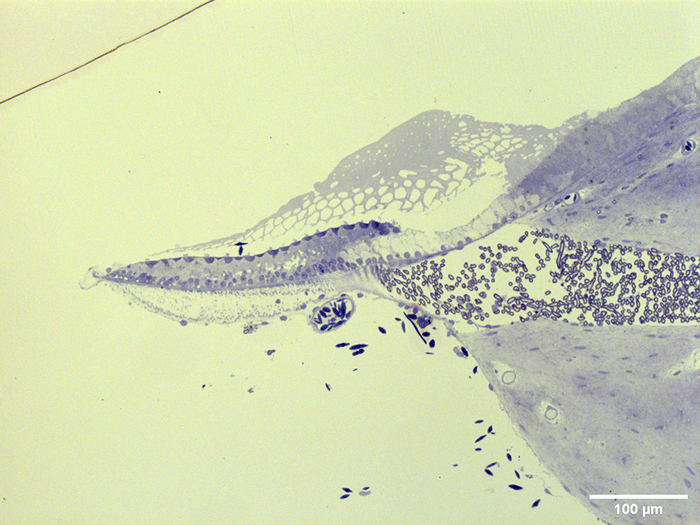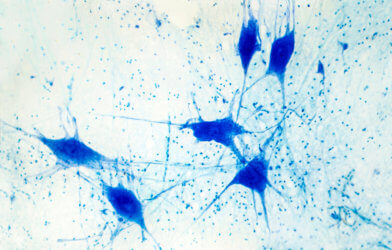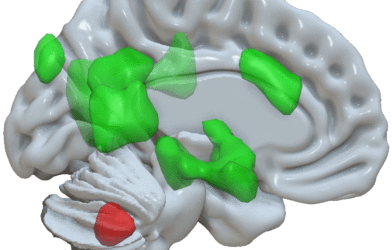Could one of the world’s most-feared creatures lead to new innovations for human health? A new study finds that crocodiles’ ears may hold the key in helping hearing-impaired people.
Researchers at Uppsala University Hospital and Uppsala University in Sweden studied the inner ear of the crocodile using electron microscopy and molecular technology. Researchers found small cell particles secreted in the crocodile’s ear.
The small cell particles, which resemble exosomes, secrete enzymes that break down or form the membrane against which the cilia in the ear rub as sound comes in. Researchers found the exosomes form cavities that make it easier for the cilia to bend when sound vibrations reach the ear.
“One hypothesis is that this increases sensitivity to sound and hearing improves. Our hope is to learn how crocodiles regenerate their hair cells and to eventually be able to use that on people in the future,” says Helge Rask-Andersen, study researcher and professor of experimental otology at Uppsala University, in a statement.
Crocodiles, who live up to 70 years of age, have good hearing throughout their lives. Their hearing is adapted for being on land and underwater. “One distinctive characteristic is that the receptors’ sensitivity to different pitches is affected by external temperature, making it perfect for different kinds of dangers in different environments during evolution,” the media release reads.

One reason crocodiles have excellent hearing is that they can create new hair cells.
“We can see that new hair cells seem to be formed from the activation of so-called support cells, which is connected to crocodiles having certain cell structures that humans appear to lack. Our hypothesis is that nerves that carry impulses from the brain, so-called efferent nerves, trigger that regrowth,” says Rask-Andersen.
Over 1 billion people worldwide are affected by impaired hearing. Hearing impairment is usually caused by receptors in the ears that have stopped working. Humans cannot regenerate these receptors, however they can in animals that are not mammals, like crocodiles.
Researchers hope the knowledge they gained from studying crocodile ears will be able to help people with impaired hearing.
The study is published in Frontiers in Cell and Developmental Biology.












